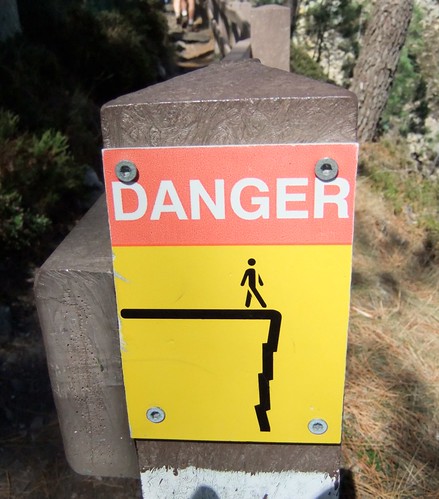 Rupert Lescott wrote a great blog post yesterday about Lessons Analysis - how by looking at the products of an effective lesson learning system we can recognise common themes across a number of lessons.
Rupert Lescott wrote a great blog post yesterday about Lessons Analysis - how by looking at the products of an effective lesson learning system we can recognise common themes across a number of lessons.In the 90s, I was in charge of a lesson-learning system in Norway. At one point we had lessons from over 300 projects in the system, and we grouped them (as Rupert describes) into a series of "things that commonly go wrong in our projects".
Rupert provides a similar list in his blog post today, based on experience in very many projects around the world.
In Norway, we treated our list as our "Danger Radar" - the more of these problem areas that a project faced, the greater the risk to effective project delivery. The top 7 problem areas were as follows (remember these were small office-based projects)
- The project team is new, or contains a significant number of new members
- There is no clear full-time customer for the project
- Satisfactory completion of the project relies on an external supplier.
- The project is a low priority 'back-burner' project.
- The project scope is poorly defined.
- The project relies on an unusual degree of IT support.
- The project involves consultation with large numbers of staff.
Such a project therefore needed to pay considerably more attention than usual to project management, and was advised to scan back through the relevant lessons and guidance, and speak to the people involved, in order to find out how the danger can be averted.
A few years later, the organisation applied the same concept to big engineering projects, and came up with what they called the "Train Wreck Indicator" - a similar indicator based on common reasons for failure, determined through lessons analysis. Any project that scored a Red Light on the train wreck indicator was given additional help and oversight in order to help it steer a path through the problem areas, and avoid becoming a train wreck.
If you have an effective lessons learned system, and are building up a library of project lessons, then consider a similar analysis, to build your own "Danger Radar".
Contact us if you want to know more about our lessons analysis service.




No comments:
Post a Comment